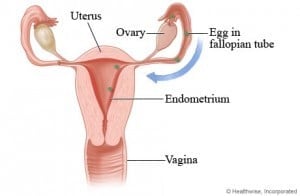
By Shruti Malik, M.D., of Shady Grove Fertility’s Fair Oaks and Woodbridge, VA, offices
Weight can often be a sensitive topic, but it’s important to address, as it can have a significant impact on your overall health, as well as your ability to get pregnant. Your body mass index (BMI)—the percentage of your body fat based on height and weight—is a measurement that allows physicians to determine if you are underweight, overweight, obese, or extremely obese. Whether under or overweight, your health can be adversely affected: being overweight can increase the likelihood of diabetes, heart disease, and hypertension, as well as several other medical conditions. Being underweight can also have a significant effect on your health, increasing the possibility of nutritional deficiencies, a decline in energy efficiency, anemia, and osteoporosis.
For Women: The Impact of Weight on Fertility

From a fertility standpoint, it’s important to have a healthy BMI, as being under or overweight can affect a woman’s ability to conceive. Depending on age, a woman’s chance of conceiving is approximately 15 percent each month, but in order for conception to occur, a woman needs to produce an egg and release that egg—a process known as ovulation.
Ovulation is critical for pregnancy to occur, but many women who are under or overweight do not ovulate or they may not ovulate on a predictable basis, which can contribute to ovulatory dysfunction. Women who are underweight may not be getting adequate nutrition or may have hypothalamic amenorrhea that keeps them from ovulating on a predictable basis as well. Studies have shown though that in patients whose infertility is specifically due to weight, correction of the underlying disorder can lead to pregnancy in up to 70 percent of women [1]. The ideal BMI for women trying to conceive is between 19 and 24.
It’s important to maintain a healthy weight not only when you are trying to conceive but during your pregnancy as well. There are many complications that can result when women are under or overweight during pregnancy, but by maintaining a healthy weight and lifestyle, a woman can lower her risk of miscarriage, gestational diabetes, and other pregnancy complications.
For Men: The Impact of Weight on Fertility

Just like with women who have fertility complications related to BMI, men can experience similar difficulties. If men are overweight, it can affect sperm count and sperm motility (how sperm move). When the male hormones are increased (a result of an increased BMI with a heavier weight), it can impair the man’s ability to make sperm on a regular basis. The natural balance of testosterone and estrogen can be affected, which then may affect the ability to produce sperm. Men who are obese can also experience warming of the scrotum. If the scrotal temperature increases by 1 or 2 percent, it can impact sperm production or survival.
If men are able to achieve a healthier BMI, though, it can greatly improve their sperm production. Men produce millions of new sperm every day, making it highly beneficial to men who want to alter their lifestyle habits. Sperm takes about 74 days to mature, which means that men who lose weight or make positive lifestyle changes only need to wait about 3 months before seeing improvements in sperm quality—and an increase in their chances of reproductive success.
The Effect of BMI and Weight on Fertility Treatment
For women who need fertility treatment, BMI is strongly connected to treatment success. For women who are overweight, they may have:
- a diminished response to fertility medications
- difficulty monitoring ovarian response
- a higher risk of complications from surgical procedures
- a higher probably of producing immature eggs during in vitro fertilization (IVF) cycles, which leads to a lower chance of becoming pregnant
How to Modify Your Weight to Improve Your Chance of Pregnancy
I encourage all of my patients to achieve a healthy diet and exercise regimen in order to lose weight. Even weight loss of 5 to 10 percent can affect a woman’s ability to resume regular ovulation when her infertility is associated with weight alone. In women who are significantly underweight and have associated disorders, reaching a more healthy body weight can help ovulation resume as well.
Try to find exercise regimens you will continue with—running or walking outside or a type of sport you enjoy. If you can perform your exercise regimen with your significant other or a friend, it will make it even easier to stick to this new routine.
I also tell my patients to try to limit their known ‘vices.’ If you know you eat a lot of processed foods, or drink a lot of soda, or eat out a lot, try to limit it. Make small changes in your lifestyle that you will be able to continue with. And make sure that your diet is healthy—no binge or excessive dieting, which can put an undue amount of stress on your body, making it more difficult to conceive and to have a healthy pregnancy.
Look for resources in your community to help you have the greatest chance of success: seek out nutritionists, dietitians, and other health and wellness specialists who can help you achieve a healthy BMI.
References:
- Bates GW, Bates SR, Whitworth NS: Reproductive failure in women who practice weight control. Fertil Steril 37:373. 1982.





